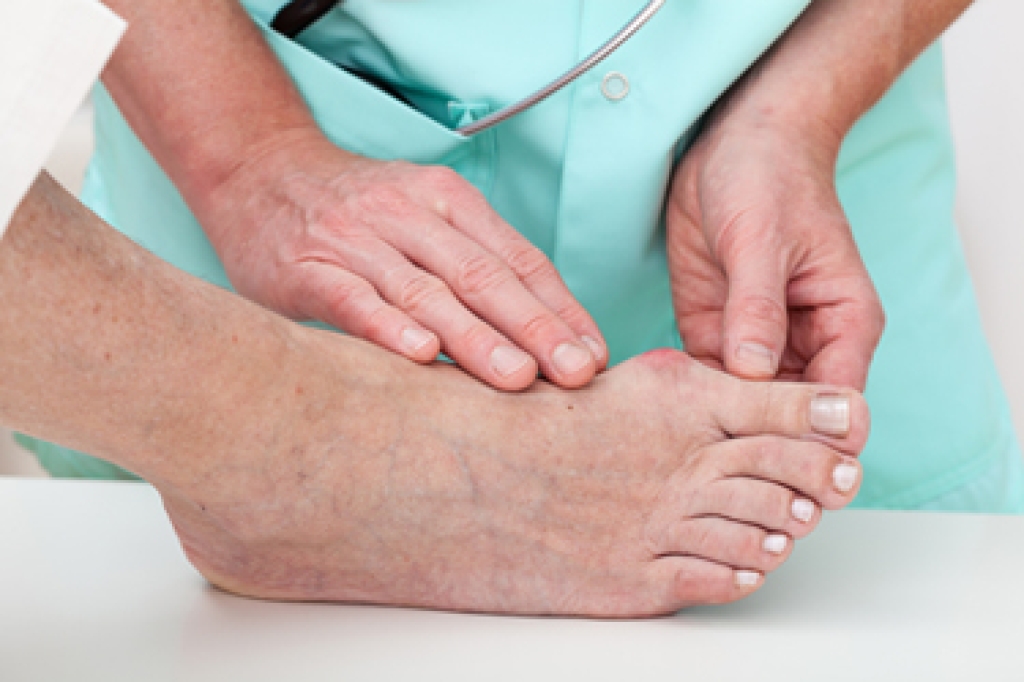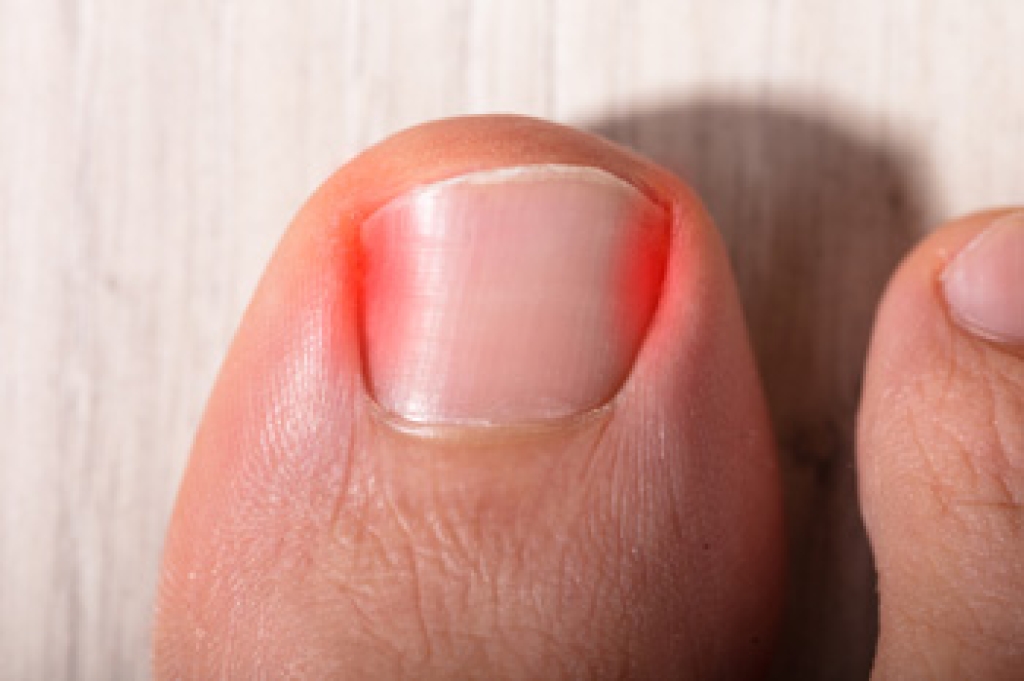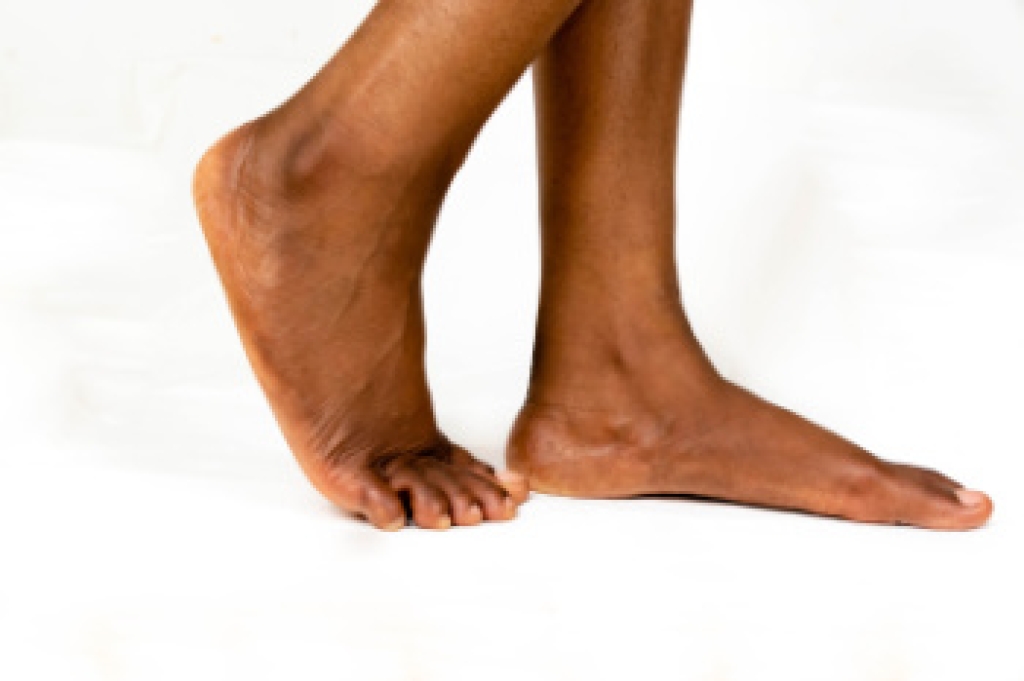Blog
Treating and Managing Bunion Pain

A bunion is a foot deformity that develops when the big toe shifts toward the lesser toes, creating a bony bump along the side of the foot. This alignment change increases stress on joints and soft tissue. A bunion often causes pain, swelling, stiffness, and trouble wearing shoes. It may worsen due to abnormal foot mechanics, inherited foot structure, or prolonged pressure on the forefoot. A podiatrist helps manage bunions by assessing foot alignment, gait, and deformity severity. Treatment options include shoe modifications, padding, orthotic devices, activity adjustments, and targeted therapies to reduce pressure and slow progression. In advanced cases, surgery may be needed to realign the joint and improve function. For help with managing pain caused by bunions, it is suggested that you make an appointment with a podiatrist for an exam, diagnosis, and treatment.
If you are suffering from bunions, contact Wendy K. Stinson, DPM of New Jersey. Our doctor can provide the care you need to keep you pain-free and on your feet.
What Is a Bunion?
A bunion is formed of swollen tissue or an enlargement of boney growth, usually located at the base joint of the toe that connects to the foot. The swelling occurs due to the bones in the big toe shifting inward, which impacts the other toes of the foot. This causes the area around the base of the big toe to become inflamed and painful.
Why Do Bunions Form?
Genetics – Susceptibility to bunions are often hereditary
Stress on the feet – Poorly fitted and uncomfortable footwear that places stress on feet, such as heels, can worsen existing bunions
How Are Bunions Diagnosed?
Podiatrists often perform two tests – blood tests and x-rays – when trying to diagnose bunions, especially in the early stages of development. Blood tests help determine if the foot pain is being caused by something else, such as arthritis, while x-rays provide a clear picture of your bone structure to your provider.
How Are Bunions Treated?
- Refrain from wearing heels or similar shoes that cause discomfort
- Select wider shoes that can provide more comfort and reduce pain
- Anti-inflammatory and pain management drugs
- Orthotics or foot inserts
- Surgery
If you have any questions, please feel free to contact our office located in Parsippany-Troy Hills, NJ . We offer the newest diagnostic and treatment technologies for all your foot care needs.
Painful Ingrown Toenails

Ingrown toenails occur when the edge of a nail grows into the surrounding skin, creating irritation that can quickly become painful. This condition often develops from improper nail trimming, tight footwear, injury, or natural nail shape. Symptoms may begin with tenderness and progress to swelling, redness, and increasing pain, sometimes joined by drainage, warmth, or infection. The affected toe may look inflamed or puffy along the nail border, and it can feel sore, throbbing, or sharply painful, especially when walking or wearing shoes. Left untreated, ingrown toenails can worsen and interfere with daily activities. A podiatrist can help by carefully examining the nail and surrounding tissue to confirm the diagnosis and assess severity. Early treatment may include trimming, lifting, or protecting the nail edge, along with guidance on proper foot care. More advanced cases may require partial nail removal, medication, or corrective procedures to prevent recurrence. If you have a painful ingrown toenail, it is suggested that you make an appointment with a podiatrist.
Ingrown toenails can become painful if they are not treated properly. For more information about ingrown toenails, contact Wendy K. Stinson, DPM of New Jersey. Our doctor can provide the care you need to keep you pain-free and on your feet.
Ingrown Toenails
Ingrown toenails occur when a toenail grows sideways into the bed of the nail, causing pain, swelling, and possibly infection.
Causes
- Bacterial infections
- Improper nail cutting such as cutting it too short or not straight across
- Trauma to the toe, such as stubbing, which causes the nail to grow back irregularly
- Ill-fitting shoes that bunch the toes too close together
- Genetic predisposition
Prevention
Wearing proper fitting shoes and using proper cutting techniques will also help decrease your risk of developing ingrown toenails.
Treatment
Ingrown toenails are a very treatable foot condition. In minor cases, soaking the affected area in salt or antibacterial soaps will not only help with the ingrown nail itself, but also help prevent any infections from occurring. In more severe cases, surgery is an option. In either case, speaking to your podiatrist about this condition will help you get a better understanding of specific treatment options that are right for you.
If you have any questions, please feel free to contact our office located in Parsippany-Troy Hills, NJ . We offer the newest diagnostic and treatment technologies for all your foot care needs.
Walking Shoes Versus Running Shoes and Why the Right Choice Matters

Walking and running shoes may seem similar but they are designed with different traits to support the way your feet move. Running shoes typically provide more cushioning in the heel and forefoot to absorb impact at faster speeds, while walking shoes are more flexible and support the natural roll of the foot during each step. Wearing the wrong type can lead to pain, strain, or injury. A podiatrist can assess your gait, foot type, and activity needs to guide you toward the right footwear and prevent future problems. If you have developed foot pain from wearing the wrong type of exercise shoes, it is suggested that you consult a podiatrist.
If you are a runner, wearing the right running shoe is essential. For more information, contact Wendy K. Stinson, DPM from New Jersey. Our doctor can provide the care you need to keep you pain-free and on your feet.
Choosing the Right Running Shoe for Your Foot Type
To increase performance and avoid the risk of injury, it is important to choose the right running shoe based on your foot type. The general design of running shoes revolves around pronation, which is how the ankle rolls from outside to inside when the foot strikes the ground.
- Neutral runners are able to choose from a wide variety of shoes, including minimalist shoes or even going barefoot.
- Runners who overpronate, or experience an over-abundance of ankle rolling, should choose shoes that provide extra motion control and stability.
- Runners who underpronate, or supinate, have feet that have high arches and lack flexibility, preventing shock absorption. They require shoes with more flexibility and cushion.
If you have any questions, please feel free to contact our office located in Parsippany-Troy Hills, NJ . We offer the newest diagnostic and treatment technologies for all your foot care needs.
Certain Exercises Can Help With Flat Feet

Exercises can help improve comfort and support for people with flat feet by strengthening muscles that help maintain the arch and control foot movement. Flat feet occur when the arch collapses or does not fully form, which may place added strain on the feet and ankles during walking or standing. Exercises that focus on gently lifting the arch, improving toe control, and increasing ankle flexibility may help the foot function more efficiently. Movements that involve pulling the ball of the foot toward the heel without curling the toes can activate important stabilizing muscles. Controlled heel raises can support alignment through the arch and ankle. Stretching the calf muscles may also help reduce tension that affects foot posture. When performed consistently, these exercises may reduce fatigue and discomfort for some people with flexible flat feet. If you have flat feet that are causing discomfort, it is suggested that you make an appointment with a podiatrist for an exam, diagnosis, and treatment.
Flatfoot is a condition many people suffer from. If you have flat feet, contact Wendy K. Stinson, DPM from New Jersey. Our doctor will treat your foot and ankle needs.
What Are Flat Feet?
Flatfoot is a condition in which the arch of the foot is depressed and the sole of the foot is almost completely in contact with the ground. About 20-30% of the population generally has flat feet because their arches never formed during growth.
Conditions & Problems:
Having flat feet makes it difficult to run or walk because of the stress placed on the ankles.
Alignment – The general alignment of your legs can be disrupted, because the ankles move inward which can cause major discomfort.
Knees – If you have complications with your knees, flat feet can be a contributor to arthritis in that area.
Symptoms
- Pain around the heel or arch area
- Trouble standing on the tip toe
- Swelling around the inside of the ankle
- Flat look to one or both feet
- Having your shoes feel uneven when worn
Treatment
If you are experiencing pain and stress on the foot you may weaken the posterior tibial tendon, which runs around the inside of the ankle.
If you have any questions, please feel free to contact our office located in Parsippany-Troy Hills, NJ . We offer the newest diagnostic and treatment technologies for all your foot care needs.

